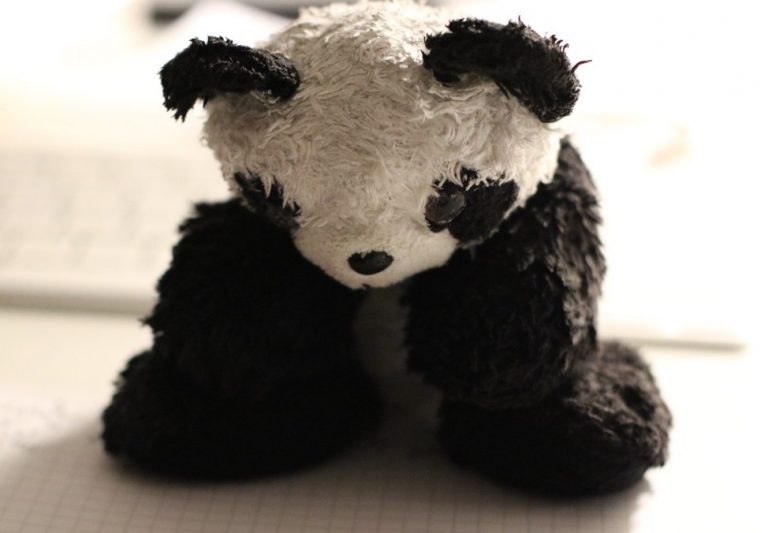ARTIFACTS
When I was growing up, I hated the crowded shelves in the living room, den, and hallway of our Upper West Side apartment. “I arrived from Europe with nothing,” Ellen said when I complained. “I have built a life and filled it with beautiful things.”
“But you can’t see them,” I protested. “They’re just all jumbled together. You can’t tell how beautiful any of them are.”
When she was gone, the jumble of my mother’s life joined that of mine. Her furniture filled every corner of my house, and the things that she had collected became mine to watch over. There is much to be said for large families. Or maybe not “much,” but certainly the distribution of relics, both actual and emotional, among numerous family members is, from where I sit, greatly to be desired. The thought of having someone to squabble with over possession of a vase or a table or a necklace holds much appeal for me.
Items collected over three, four, five peoples’ lifetimes are left for me to dispose of, to choose between: You are loved and cherished; you are not. You are worth selling; you are not. You can go to Goodwill; you are off to the dump. It is the useless and ugly that particularly trouble me, because I know they were all precious once to someone still precious to me. A basket of silk flowers, torn and dirty. Dried eucalyptus branches and swamp grass still, miraculously, in the dented copper urn they’d occupied for years. A large straw sewing basket, filled with half-done needlepoint pillows, sweaters with one sleeve, knitting needles, crochet hooks, embroidery patterns.
Blue leaves and flowers drift along the white sides of bowls and plates, cups and candlesticks. I have unearthed a pair of blue-and-yellowy-white candles that nearly match the dishes. They stood, for uncounted years, in those candlesticks on a shelf in the dining area of the West End Avenue apartment. One of the candles is cracked around the middle, has been for as long as I can remember, held upright by the will of the wick and the sternness of Ellen.
I imagine I was the culprit who knocked it from its perch, but then again it might have been one of the cats on a nightly prowl (on one of those nights that my pleading prevailed and the four beasts were not banished to the maid’s room behind the kitchen). It might even have been Ellen herself in a fit of frenzied cleaning. It was broken long before poor Lou ever came to stay, and I very much doubt if it was Ali, who never broke anything unless it was on purpose.
Like the dishes. Not this double set of china from England, which has come into my possession, but another set of blue-and-white dishes, those probably purchased at Goodwill or picked up at a flea market on some rainy Sunday. This set had no flowers or leaves, just a thin band of blue around all its rims. My father stood in the kitchen, in front of the open cabinet where they were neatly stacked and, removing them methodically, one at a time, from their shelf, he smashed them, equally methodically, against the wall beside the stove. Or did he hurl them to the floor with such force that they shattered? I’m not sure anymore, and, while I suspect that the fight was about money, I don’t remember that either. It was a very long time ago. I was younger than ten. What I do recall is Ellen sitting on the bed next to the window, where the Ferris wheel and the roller coaster in Palisades Park could be seen reflecting their lights into the Hudson, and the tops of neighboring brownstones on the side streets between us and the river showed us their roof gardens and iron grates.
She sat there sobbing and shouting at me: “Put on your shoes, Ruth Ann! For God’s sake, put something on your feet!” as I ran across the wide living room, first to him in the kitchen, then back to her crumpled on the bed and then back again and again, hoping, I daresay, that I would cut my feet because then they would both have to stop what they were doing and take care of me.
Once, during another fight, when a single glass was the lone casualty, I did put my hand into the shattered shards that lay on the rug beside their bed. I still carry the scar on the heel of my right hand, a thick raised triangle covers the area, though it gets smaller with each decade. I do remember lifting my hand from the floor, dripping red, right after Ellen shouted, “Ruth Ann! Be careful!” I don’t think I did it on purpose, at least not consciously. But it worked. They stopped fighting.
Now I have the scar and the dishes and the candles. In dim light, the candles don’t look too bad. In daylight, you can see that they are an unattractive yellow-beige, clearly relics from another time and two that might not be worth keeping. Ah, but who is to say what is “worth keeping”? Am I? There’s no one else. But how can I presume to know what, among this trove of possessions and memories bequeathed to me (because there is no one else) by so many—by mother and father and aunt, by uncle and stepfather and long-gone family friends—is “worth keeping”?
I have filled the round, dark mahogany table with the claw feet, around which we sat in various configurations in that apartment, with the artifacts they have left me. A jumble of Native American necklaces and bracelets that had belonged to my aunt. Heavy glass bookends, with haunting faces trapped inside, painted by my stepmother. A carved wooden box from Poland was a relatively late gift I had made to Ellen, though why I thought giving a Polish box to my German Jewish mother was a good idea escapes me now. It was hand carved, that may have been it, a symbol of personal effort.
There are many of these tokens of my love in the pile on the table—one ceramic cork-topped bottle even says, “Love,” the word flagrantly carved into its swollen side, a bald declaration of feelings I could never express enough to satisfy my mother’s need. A four-inch tall, give or take a centimeter or two, glass heart. It was meant to be a perfume bottle, I guess, since there’s a stopper that sticks out of the top, kind of like the stem of an apple. The heart is clear at the top, deepening into shades of violet and plum near the bottom. It was a Mother’s Day gift, or maybe a birthday present, given to her during the time that a country divided us and we had overwrought phone conversations in which we could find no comfortable ground we could occupy together. I made these offerings to her in exchange for my freedom. She accepted the offerings, usually, but didn’t willingly give me freedom.
Here, I kept saying with each gift, you have my heart, isn’t it enough? No, was her answer, I need your person as well. I am not safe unless you’re near me.
The day before I left New York for my new home on the other side of the country, I got her a black-and-white stuffed panda bear. I had been out (blessedly, mercifully out for a few hours) and spotted him as I slowly made my way back up Broadway. His black eyes and open arms beckoned me, and I thought—I hoped—that in his sweet, sad gaze, my mother would find some comfort in my absence.
When I arrived at the apartment, I went into the bedroom where she was lying. She often lay there, whatever the time of day. It was four in the afternoon, the sky outside the open ninth-floor window still bright, with only a tinge of brownish gray over New Jersey.
“Look what I brought you,” I said. “He’ll keep you company while I’m in California.”
My mother sat up when I came into the room holding out the bear. I expected her eyes to fill with tears. I expected her to say, “Oh monkey-face. I’ll keep him right here with me until we can be together again.” Then I expected I would start crying too, and we would put our arms around each other and comfort ourselves with our tears.
My mother snatched the bear out of my hands with a convulsive gesture. Her eyes narrowed. Her mouth twisted into a grimace. “You have the gall to give me a stuffed bear and tell me he’ll keep me company while you’re gone,” she hissed. “You think a stuffed bear is what I need to love? Who do you think I am, some kind of patsy for your empty gestures of love? You want to know what I think of your bear? This is what I think of your bear.”
And with a sudden movement, her arm shot up and the bear flew out of her hand and through the open window, between the bars of the heavy gate that now obscured the view of Palisades Park-less New Jersey.
We stared at each other for a moment. Then the tears came. “I’m sorry,” I sobbed. “I just wanted to give you something to help make my going easier. I know it was stupid of me. I’m so sorry.”
“No, no,” she gasped, the tears running down her cheeks. “I am sorry. I know you have to go. And I know you meant well. It was very sweet of you to get me the bear. It’s a lovely bear. I want it. I really do. Come here, darling, and give me a hug.” She blew her nose and stroked my hair as I knelt on the floor beside her bed. “Please, darling. Stop crying. I can’t handle much more right now. I have to think. Lou!” she called sharply. “Lou! Where are you? I need you.”
Lou appeared in the doorway. “It’s almost time for MacNeil/Lehrer,” he said. “Shall I turn it on for you?”
“Don’t lurk, Lou, and don’t be an idiot.” My mother took a sip from the cup of tepid chamomile tea that was always beside her bed. “I need you to find the super and have him let you into the courtyard. Something fell out the window and I need you to go get it.”
“Fell?” he said. “What fell? Won’t it be broken if it fell out the window?”
“A stuffed animal doesn’t break, for God’s sake. Just go ring for the elevator man and have him find the super for you. Tell him we accidentally knocked it out the window. Well, go on. What are you waiting for? It’s almost five o’clock. You better get him before he goes home.”
Lou went, returning half an hour later with a black-and-white and slightly gray bear. There’s a streak of oil on the top of his head still, and one leg is permanently twisted, but he spent the rest of my mother’s life beside her bed.
Now he sits on the round table, along with all the other artifacts, looking up at me with the same sweet, sad gaze in his black eyes. Whether he is “worth keeping,” I don’t know. I do know he has to stay with me, at least for the time being. He’s earned it. Maybe the love I tried to express to my mother, and she to me, can somehow loop around his little fake furry body and fill me. It’s time.
***
Ruth Neuwald Falcon is an Emmy Award-winning editor, writer, producer and blogger. Coauthor of The Elderwise Way: A Different Approach to Life with Dementia, she is the founder of the Corona Support Blog.

